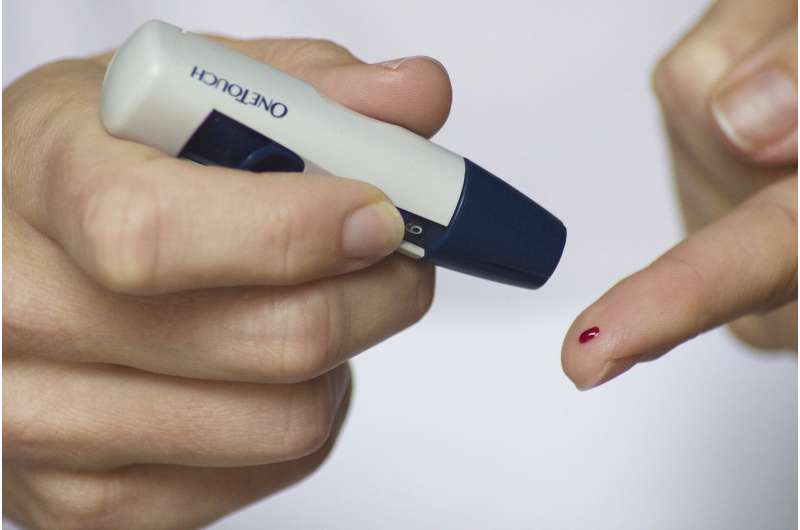Combination medication helps patients with type 2 diabetes maintain blood sugar goals

For patients with diabetes, bringing down and maintaining lower blood glucose levels is important to minimize the risk of long-term complications such as nerve damage, kidney damage, an increased risk of heart disease, eye problems, and more. Through a randomized, multicenter clinical trial sponsored by Novo Nordisk, investigators studied blood glucose results for patients assigned to either take insulin (insulin glargine, IGlar U100) or insulin degludec plus liraglutide (IDegLira), a combination of both insulin and an additional medication to help with blood sugar control. The global study team found that participants who received IDegLira were better able to achieve blood glucose goals and remain at that goal longer compared to those assigned to receive IGlar. Results are presented today at the American Diabetes Association's Scientific Sessions and published simultaneously in The Lancet Diabetes & Endocrinology.
"We believe this reflects a more durable effect of IDegLira compared to IGlar, possibly related to the complementary roles and physiologic effects in the combination formulation," said corresponding author and global signatory investigator Vanita R. Aroda, MD, a specialist in the Division of Endocrinology, Diabetes and Hypertension at Brigham and Women's Hospital.
The study, known as DUAL VIII (Durability of insulin degludec plus liraglutide versus insulin glargine U100 as initial injectable therapy in type 2 diabetes) was a 104-week international, multicenter, open-label, phase 3b trial. It enrolled 1,012 patients who were insulin-naïve, aged 18 and older, and had HbA1c 7-11% and a BMI of 20 kg/m² or higher on stable doses of oral antidiabetic drugs. Patients were randomly assigned to take insulin glargine 100 units/mL (IGlar U100) or IDegLira, which contains a GLP-1 receptor analogue—a molecule that is similar to a naturally occurring compound that reduces blood glucose levels. Both IDegLira and IGlar were administered as once-daily injections. The primary endpoint was time to need for treatment intensification.
Patients in the IDegLira group had significantly longer time until need for intensification of treatment than those in the IGlar group. Investigators reported more effective glucose lowering, less weight gain and less risk of hypoglycemia, or low blood sugar, over the 104 weeks with the combination approach (IDegLira) compared to basal insulin alone (IGlar). No new safety or tolerability issues were reported in the trial.
In their paper, Aroda and her colleagues describe the clinical inertia that surrounds the treatment of diabetes. Concerns about weight gain, low blood sugar and fear of injectables may prevent patients from achieving better glycemic control. Although both IDegLira and IGlar were given as daily injections, IDegLira showed improved outcomes without the need for a separate, additional injection.
"IDegLira showed greater durability than IGlar U100 in reaching and maintaining patients at glycemic goals for longer, thereby minimizing the need for additional therapy, while also reducing the side effects often associated with insulin-only therapy," the authors write. "Taken together, the data from DUAL VIII illustrate the potential benefit of a combined insulin plus GLP-1RA approach, such as IDegLira, as a first injectable therapy."
More information: Vanita R Aroda et al. Durability of insulin degludec plus liraglutide versus insulin glargine U100 as initial injectable therapy in type 2 diabetes (DUAL VIII): a multicentre, open-label, phase 3b, randomised controlled trial, The Lancet Diabetes & Endocrinology (2019). DOI: 10.1016/S2213-8587(19)30184-6















